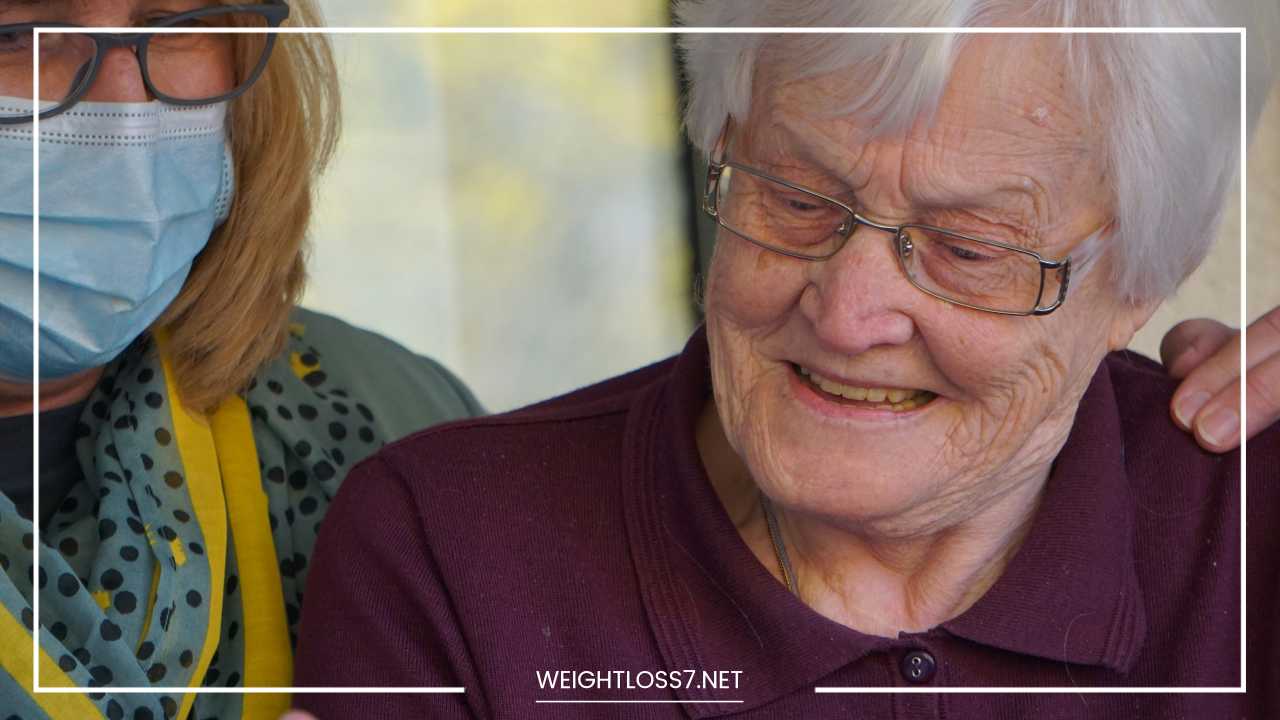Carers: The Unsung Heroes of Healthcare

Carers
Carer: The Unsung Heroes of Healthcare
The healthcare system thrives on a complex web of professionals, each playing a vital role in patient recovery and well-being. While doctors, nurses, and surgeons often take center stage, there’s another group deserving of immense recognition: carers.
Carers, also known as caregivers, are individuals who dedicate themselves to providing unpaid care and assistance to someone who is unable to manage daily activities due to illness, disability, aging, or mental health challenges.
Their unwavering commitment ensures the well-being of those who depend on them, making them crucial players in the healthcare landscape.
The Heart of Caregiving: Who are Carers?
Anyone can be a carer. It could be a spouse providing unwavering support to their partner after a stroke, a parent nurturing a child with a chronic illness, an adult child stepping up to care for an aging parent, or a sibling offering a helping hand to a brother or sister with a disability.
Carers come from all walks of life, united by their unwavering love and commitment to the well-being of their loved ones.
The Tapestry of Responsibilities: What Does a Carer Do?
The responsibilities of a carer vary depending on the specific needs of the person they are caring for. However, some common threads weave through the tapestry of caregiving:
- Assisting with Daily Living Activities (ADLs): This encompasses helping with bathing, dressing, toileting, eating, and mobility. Carers ensure basic needs are met with patience, dignity, and respect.
- Managing Medication: Carers may be responsible for reminding patients to take their medication, administering medication accurately, and monitoring for side effects. This meticulous attention to detail can significantly impact a patient’s health trajectory.
- Providing Emotional Support: Carers offer a listening ear, a shoulder to cry on, and unwavering companionship. They are a constant source of emotional strength, helping patients cope with the challenges of their condition and navigate the emotional rollercoaster of illness or disability.
- Assisting with Medical Appointments: Carers are often the backbone of medical appointments. They may accompany patients, take notes, ask clarifying questions on the patient’s behalf, and ensure clear communication between the patient and healthcare professionals.
- Household Tasks: Carers often take on the mantle of household chores, ensuring a safe and comfortable environment for the person they are caring for. Cooking, cleaning, grocery shopping, and managing finances become part of their daily routine.
- Advocacy: Carers may need to advocate for their loved ones by liaising with healthcare professionals, social services, and other organizations. This can involve navigating complex healthcare systems, securing necessary services, and ensuring their loved one’s voice is heard.
The Ripple Effect: The Impact of Carers on the Healthcare System
Carers play a critical role in supporting the healthcare system in several ways:
- Reduced Hospital Stays: Carers can help patients recover faster at home, reducing the burden on hospitals and lowering healthcare costs. Studies have shown that patients with strong carer support tend to have shorter hospital stays and require less post-discharge care.
- Improved Patient Outcomes: The emotional and practical support provided by carers significantly impacts patient outcomes. Studies have shown that patients with strong carer support tend to have better overall health outcomes, improved adherence to treatment plans, and a higher quality of life.
- Early Intervention: Carers are often the first to notice changes in a patient’s condition, such as subtle behavioral changes or physical decline. By flagging these concerns to healthcare professionals, carers can facilitate early intervention and better management of health issues.
- Emotional Support: Carers provide invaluable emotional support to patients, which can significantly impact their well-being and recovery. A sense of security, companionship, and love fostered by a carer can significantly influence a patient’s ability to cope with illness or disability.
The Weight of Responsibility: Challenges Faced by Carers
While caring for a loved one can be a rewarding experience, it also comes with its own set of challenges. Carers often face a multitude of burdens:
- Physical and Emotional Strain: The physical demands of caregiving, such as transfers, lifting, and assisting with mobility, can take a toll on a carer’s physical health. Additionally, witnessing a loved one’s struggles and dealing with the emotional complexities of illness or disability can lead to burnout and stress.
- Social Isolation: The time and energy required for caregiving can limit a carer’s ability to socialize and maintain personal relationships. Social isolation can exacerbate feelings of loneliness and depression, further impacting their well-being.
- Financial Strain: In some cases, carers may need to reduce their work hours or leave their jobs altogether to provide care. This can lead to financial hardship, especially if they are the primary breadwinner in the family.
- Lack of Support: Carers often feel unsupported and alone, struggling to find resources and assistance to manage their caregiving responsibilities. This lack of support can make them feel overwhelmed and lead to feelings of inadequacy.
- Information Overload: The healthcare system can be complex and overwhelming. Carers may struggle to navigate the labyrinth of medical information, treatment options, and available resources. This can lead to confusion, frustration, and difficulty making informed decisions about their loved one’s care.
- Grief and Loss: Caring for a loved one with a chronic illness or disability can involve a process of anticipatory grief. Carers may grieve the loss of their loved one’s independence, the life they once had together, and the future they envisioned.
- Difficult Choices: Carers may face difficult ethical and practical choices regarding their loved one’s care. These decisions can be emotionally charged, and carers may struggle with guilt or second-guessing themselves.
Building Resilience: Self-Care for Carers
Prioritizing self-care is essential for carers to avoid burnout and maintain their well-being. Here are some tips to build resilience and navigate the challenges of caregiving:
- Seek Support: Don’t be afraid to ask for help from family, friends, or community organizations. Look for respite care services to take a break from caregiving duties, even if it’s just for a few hours.
- Join a Support Group: Connecting with other carers can provide emotional support, shared experiences, and helpful advice. Support groups can be a safe space to vent, ask questions, and learn coping strategies from others who understand the unique challenges of caregiving.
- Maintain a Healthy Lifestyle: Prioritize adequate sleep, healthy eating, and regular exercise. These lifestyle choices are crucial for managing stress, maintaining physical and mental health, and having the energy to provide care effectively.
- Set Boundaries: It’s okay to say no and delegate tasks when needed. Setting boundaries helps prevent feelings of resentment and ensures you have time for yourself and your own health.
- Seek Counseling: If you’re struggling to cope with the emotional challenges of caregiving, consider seeking professional counseling or therapy. A therapist can provide a safe space to explore your feelings, develop coping mechanisms, and work through any difficulties you may be facing.
- Enjoyable Activities: Schedule time for activities you enjoy, even if it’s just for a short while. Taking breaks for hobbies, spending time with loved ones, or simply relaxing can help recharge your batteries and prevent burnout.
A Call to Action: Recognizing and Supporting Carers
Carers are the backbone of the healthcare system, deserving of recognition and support. Here’s how we can show our appreciation and create a more robust support system:
- Increased Awareness: Raising awareness about the vital role of carers can help foster empathy and understanding. Public awareness campaigns, media coverage, and educational initiatives can highlight the contributions of carers and the challenges they face.
- Support Groups and Resources: Providing access to support groups, counseling services, and educational resources can empower carers and equip them to manage their responsibilities effectively. Funding for carer support programs, online resources, and training initiatives can significantly improve the well-being of carers.
- Financial Assistance: Financial assistance programs can help alleviate the financial burden of caregiving. This can include tax breaks, subsidies for respite care, and financial aid programs specifically designed to support carers.
- Flexible Work Arrangements: Employers can play a crucial role by offering flexible work arrangements for employees who are also carers. This can include options for part-time work, remote work, or flexible scheduling.
- Workplace Support Programs: Businesses can implement workplace support programs that cater to employees who are carers. This can include providing access to on-site childcare facilities, offering employee assistance programs with resources for carers, and promoting a company culture that is understanding and supportive of employees’ caregiving responsibilities.
A Shared Journey: The Future of Caregiving
Caring for a loved one is a journey filled with challenges and rewards. By recognizing the invaluable contributions of carers, providing them with the support they need, and fostering a culture of empathy and understanding, we can create a healthcare system that truly values and supports both patients and the dedicated individuals who care for them.
By working together, we can build a future where caregiving is a more sustainable and rewarding experience. Here are some potential areas for future development:
- Technological Innovations: Technology can play a significant role in supporting carers. The development of assistive technologies, telehealth solutions, and remote monitoring tools can facilitate caregiving, improve communication with healthcare professionals, and provide additional support to carers.
- Caregiver Training: Providing training programs for carers can equip them with the knowledge and skills necessary to manage specific conditions, provide safe and effective care, and navigate the healthcare system effectively. Training can also help to build confidence and reduce feelings of inadequacy.
- Mental Health Support: Prioritizing the mental health of carers is crucial. Investing in mental health services specifically designed for carers can provide essential support and help them cope with the emotional challenges of caregiving.
- Community-Based Support: Building strong community-based support networks can offer a vital safety net for carers. This could involve establishing local support groups, organizing respite care programs, and creating volunteer networks that can provide practical assistance with errands, transportation, or household chores.
- Financial Planning: Financial planning for long-term care needs can be a significant challenge for both carers and their loved ones. Encouraging early planning, exploring long-term care insurance options, and promoting access to financial resources specifically designed to support caregiving can alleviate some of the financial burdens associated with this responsibility.
- Shifting Societal Attitudes: We can work towards shifting societal attitudes towards caregiving, recognizing it as a valuable contribution to society, not simply a personal responsibility. This can involve advocating for policy changes that support carers, promoting awareness about the challenges they face, and celebrating their dedication and compassion.
Final Word: The Unsung Heroes Deserve Recognition
Carers are the invisible superheroes of the healthcare system, dedicating their time, energy, and love to ensure the well-being of their loved ones. They are the backbone of patient care, playing a crucial role in recovery and maintaining quality of life.
Recognizing their invaluable contributions, providing them with the support they need, and fostering a culture of empathy and understanding are essential steps in building a more robust and humane healthcare system.
By working together, we can create a future where caregiving is a journey shared by both the carer and the healthcare system, ensuring the well-being of both patients and the dedicated individuals who care for them.

















